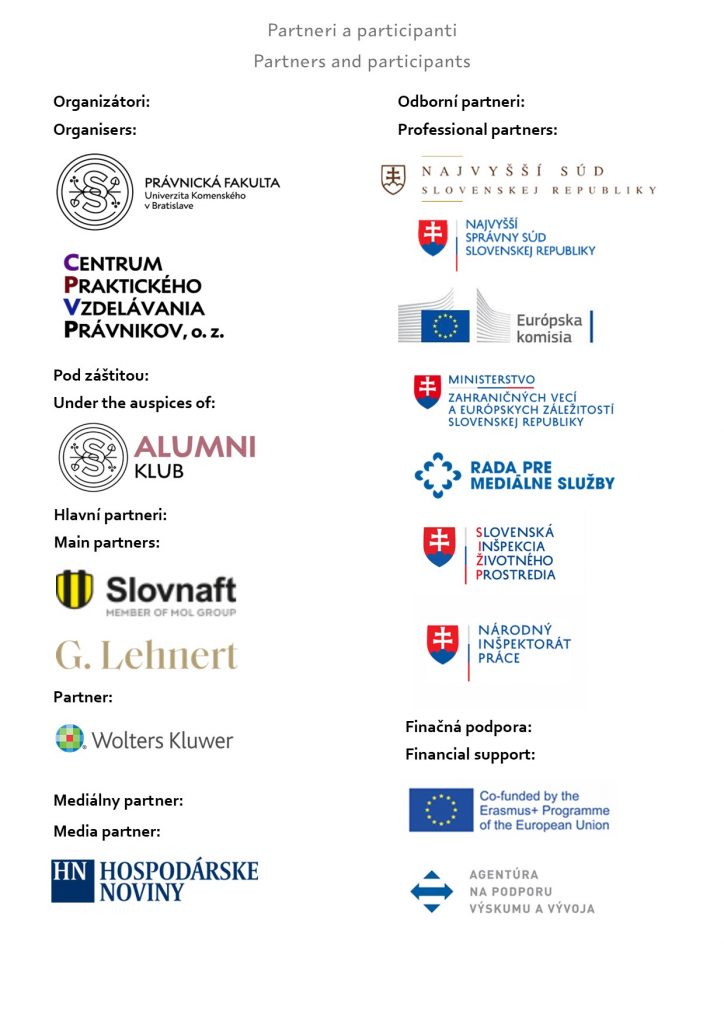I. panel discussion
Artificial Intelligence as a Challenge for Law, Legal Education and the Rule of Law
The artificial intelligence represents one of the biggest challenges for society as a whole, and this phenomenon does not bypass the law, for which it represents several challenges. One of the key ones is balanced regulation, which tries to limit unwanted risks and at the same time does not reduce the innovation potential of the industry. In the spring of 2021, the European Union presented AI in a comprehensive regulation in the form of the draft Act on Artificial Intelligence. We will discuss with our guests what are the advantages and disadvantages of this upcoming regulation. At the same time, AI itself represents a requirement for democracy, electoral processes and, last but not least, the rule of law, whether it is the implementation of automated processes in public administration or the dissemination of information on social media. Last but not least, AI also represents a need for lawyers and legal education. Will AI replace lawyers? What is the use of AI in the education of lawyers or in practice? We will also discuss these topics with our guests.
Moderator of the panel discussion: JUDr. Matúš Mesarčík, PhD., LL.M.
Guests:

Mgr. Silvia Belovičová, LL.M
advokátka
Silvia Belovičová is a lawyer in the field of finance and technology, focusing on the regulatory framework for financial technologies, cryptocurrencies, artificial intelligence. As a lawyer and partner she has gained an experience in several international law firms. In present she cooperates with the Slovak Center for Artificial Intelligence Research (Slovak-AI), where she focuses on the challenges brought by new technologies and artificial intelligence, and within the working group for regulation and ethics she helped formulate strategies for artificial intelligence in the Slovak action plan for digitization.

JUDr. Tomáš Jucha, MSc.
Senior Policy Manager, AmCham Slovakia
Tomáš Jucha as a Senior Policy Manager at AmCham covers the digital policies, needs and aspects of the digital transformation of Slovakia and its economy. In the past he was for 4 years a leader of the team at the ministry for the informatization of the company. His expert team was responsible for covering the creation of national and international digital policies, the support and development of artificial intelligence in Slovakia, as well as the development of digital skills
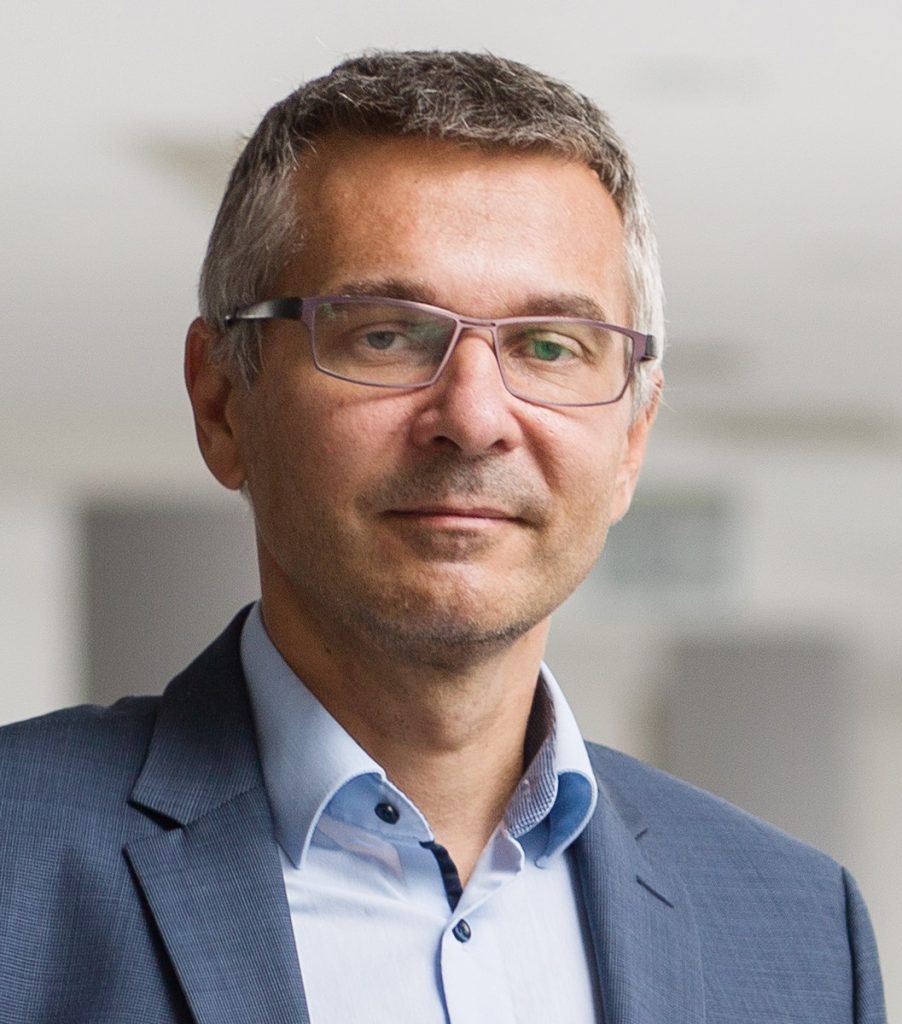
prof. Ing. Ivan Kotuliak, PhD.
Dean, Faculty of Informatics and Information Technologies, Slovak Technical University
in Bratislava
Ivan Kotuliak pôsobí ako dekan FIIT STU a súčasne pôsobí aj ako odborný zástupca SR pre European Blockchain Partnership pri EK a zároveň aj ako Slovenský zástupca Information for All programu Slovenskej Komisie UNESCA. Titul PhD získal na Univerzite vo Versailles v odbore informatika, ako aj na FEI STU v odbore telekomunikácie. Pozície výskumného pracovníka sa ujal v roku 2002, neskôr pôsobil ako odborný asistent a od roka 2019 je profesorom na fakulte FIIT STU. Jeho výskumná činnosť je zameraná na výkonnosť komunikačných sietí, architektúry NGN sietí, mobilné a bezdrôtové siete. V súčasnosti sa zaoberá technológiou Blockchain a Sieťami na doručovanie obsahu CDN, kde je spoluautorom štandardu ETSI, a zameriava sa aj na Softvérovo definované siete (SDN). Zároveň je spoluautorom viac ako 50 vedeckých publikácií. Ako hlavný riešiteľ, ale i bežný riešiteľ sa zúčastnil mnohých medzinárodných a národných výskumných projektov (viac ako 20).
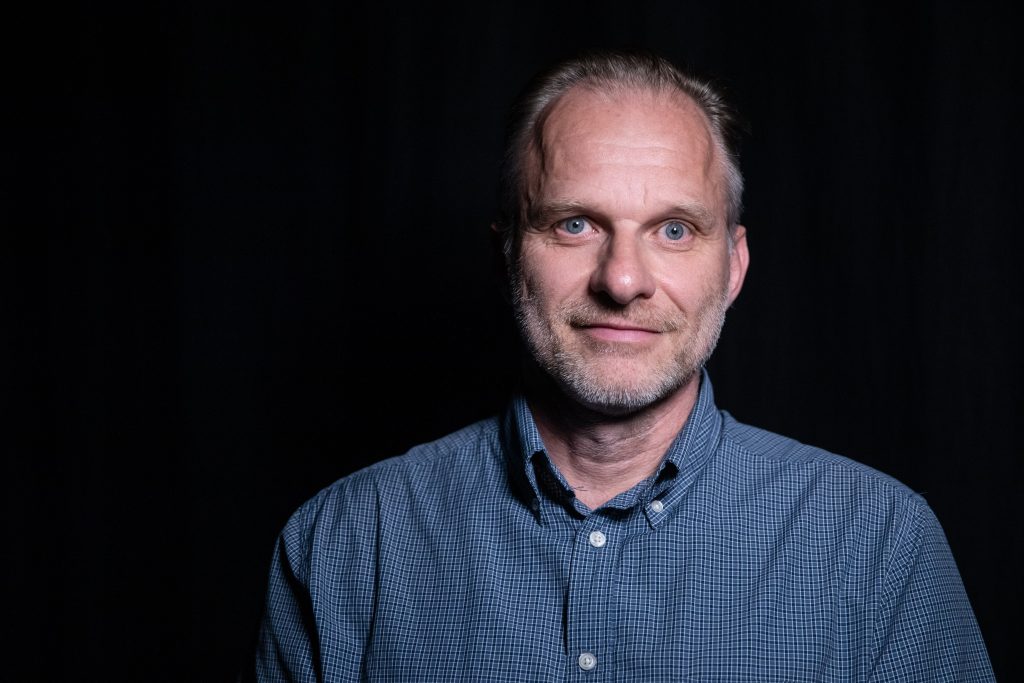
prof. Ing. Igor Farkaš, Dr.
professor, Department of Applied Informatics, Faculty of Mathematics, Physics and Informatics, Comenius University in Bratislava
Igor Farkaš graduated from Slovak Technical University in Bratislava from technical cybernetics. Since 2003 he has been working at the Faculty of Mathematics, Physics and Informatics of the Comenius University in Bratislava. He holds the prestigious Fulbright and Humboldt Foundation scholarships. His interest is focus on the research areas of cognitive science and artificial intelligence, which are thematically connected. He specializes in researching artificial neural network models and their use, especially in the field of cognitive robotics.
II. panel discussion
Criminal Law and the Rule of Law
Criminal law and the rule of law are two concepts that cannot exist without each other. The Constitution of the Slovak Republic, the Criminal Code and the Criminal Code emphasize this fact in many of their provisions. But what are the problems of the rule of law in the field of criminal law? Is the principle of legality observed in all circumstances? What challenges await the Slovak and Czech Republic in the field of criminal law in the future? We will take an opportunity to find answers to these and many other questions in the part of the plenary session entitled: "Criminal law and the rule of law."Criminal law and the rule of law“
Moderator of the panel discussion: prof. JUDr. Tomáš Strémy, PhD.
Guests:
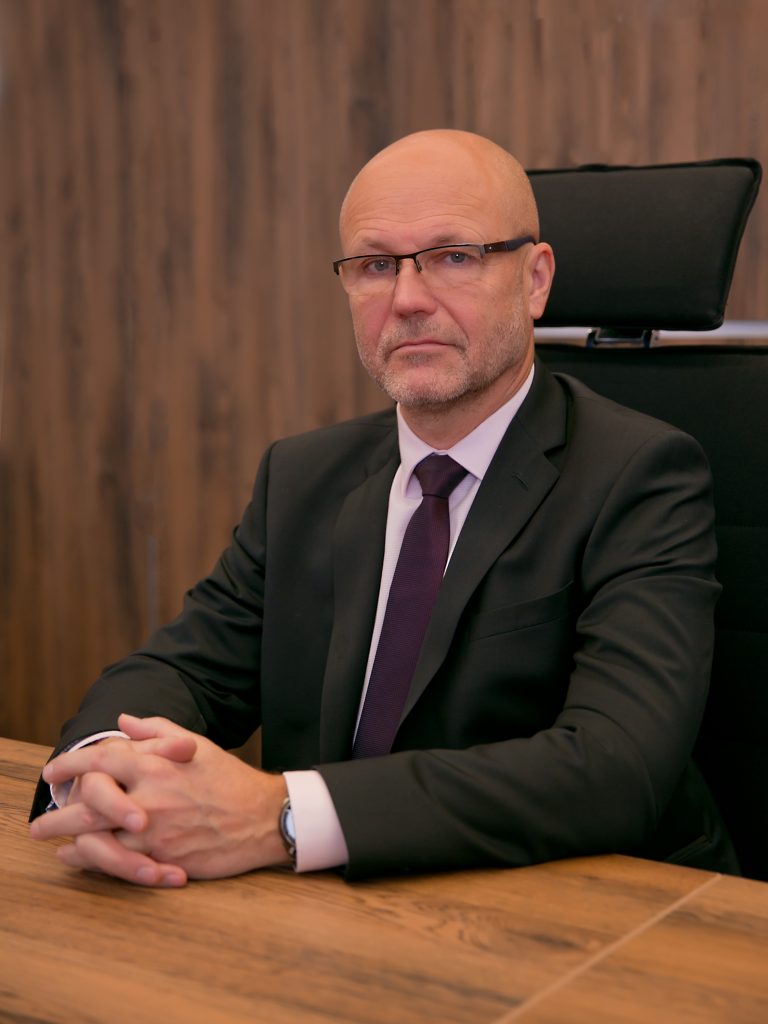
JUDr. Petr Angyalossy, Ph.D.
President, Supreme Court of the Czech Republic
In 1996 he was appointed as a judge and from that year he served as chairman of the senate at the District Court in Olomouc. In the years 1999 – 2004, he was the chairman of the Senate of the Regional Court in Ostrava with a branch in Olomouc. In 2004 he became a judge of the High Court in Olomouc, later the president of the Senate, at the same time he was the press spokesman of the High Court in Olomouc for ten years. On April 1th 2017 he was appointed as a judge of the panel of the criminal panel of the Supreme Court, and since the summer of 2018 he has been the chairman of the panel of the criminal panel of the Supreme Court. Already in his first year at the Supreme Court, he was appointed as an ad hoc judge for the Czech Republic in the joint supervisory body of Eurojust. He led the working group that prepared the Code of Ethics for judges of the Czech Republic in 2020. JUDr. Peter Angyalossy, PhD., was appointed as the President of the Supreme Court by the President of the Czech Republic Miloš Zeman on May 20th 2020 for a period of 10 years.
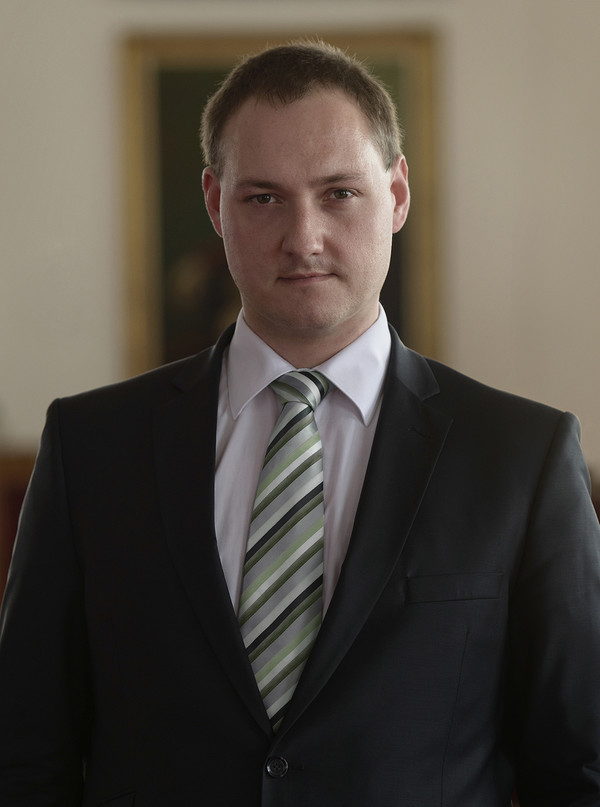
doc. JUDr. Eduard Burda, PhD.
Dean, Faculty of Law, Comenius University in Bratislava
He is a graduate of the Faculty of Law of the Comenius University in Bratislava. Since 2004, he has been working at the Department of Criminal Law, Criminology and Criminology. In his scientific work he focuses on the issue of criminal law in connection with other legal and non-legal scientific fields. He has published more than seven dozen scientific papers, two scientific monographs "Criminal offenses against life and health compared to the old and recoded Criminal Code" in 2006 and "Necessary defense and other circumstances excluding the illegality of the act" in 2013. He is the head of the author collective of the scientific commentary to the Criminal Code from the publishing house C. H. Beck, head of the author collective of the commentary on the Law on Criminal Liability of Legal Entities and co-author of the commentary on the Criminal Code. By his pedagogical work he attempts to connect theory and practical knowledge and introduce innovative teaching methods. He is currently serving his third term as dean of the Faculty of Law of the Comenius University in Bratislava.
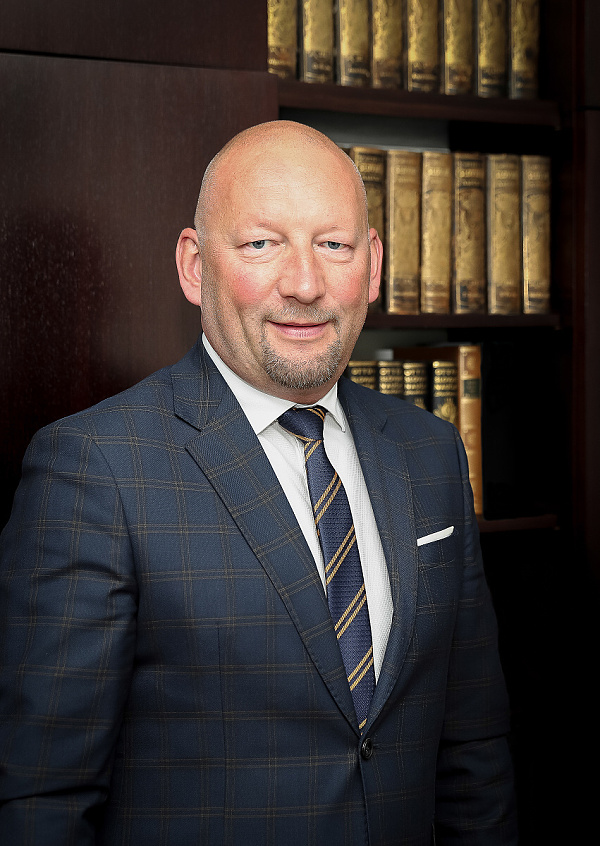
JUDr. Martin Puchalla, PhD.
Chairman, Slovak Bar Association
He successfully graduated from the Faculty of Law of the University of Pavel Jozef Šafárik in Košice in 2001, a year later he obtained the academic title JUDr. Currently he works as a lawyer. In the period of 2005 – 2008 he worked at the Faculty of Law of the University of Pavel Jozef Šafárik in Košice, namely at the Department of Criminal Law, where he defended his dissertation on the topic "Defence in pretrial proceedings". He is a co-author of the teaching texts of the UPJŠ Faculty of Law in Košice under the title "Criminal procedural law". He publishes in several professional magazines, he is engaged in lecturing. He has been a member of the Presidium of the Slovak Bar Association since 2017. From June 2021 he was the vice-chairman of the Slovak Bar Association and from September 2022 he is the chairman of the Slovak Bar Association. He was a member of the disciplinary panel of the Slovak Bar Association and a member of the European Criminal Bar Association (ECBA) based in London. He is the chairman of the SAK working group for criminal law, the chairman of the SAK examination panel and a member of the SAK working group for foreign relations. Since 2012, he has been a member of the commission of the Ministry of Justice of the Slovak Republic for the recodification of substantive criminal law.
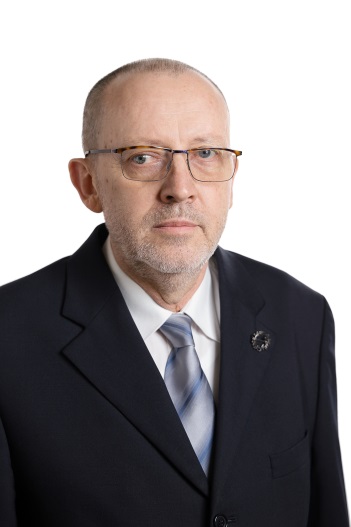
JUDr. Jozef Kandera
First Deputy of the General Prosecutor, General Prosecutor's Office of the Slovak Republic
He completed his law studies at the Comenius University in Bratislava in 1984. Between 1990 and 1994 he worked at the former City Court in Bratislava. Subsequently, he became a judge of the Supreme Court of the Slovak Republic and also the chairman of one of the senates. Since 2010, he has been working at the General Prosecutor's Office of the Slovak Republic (GP SR). He successively held the positions of prosecutor of the criminal department of the General Prosecutor's Office of the Slovak Republic, before that he was the head of the violent and general crime department of the criminal department of the General Prosecutor's Office of the Slovak Republic, and in 2013 he was also appointed as the director of the special purpose department of the General Prosecutor's Office of the Slovak Republic. Since September 2021 he has taken a possition of the first deputy of the Prosecutor General of the Slovak Republic.
